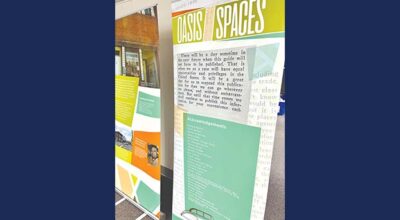Budget shortfall to hit city in 2015
Published 6:47 pm Saturday, June 28, 2014
A recent vote by the North Carolina General Assembly has done away with a key tax municipalities have relied upon to keep taxes and down and services up.
After years of discussion in Raleigh, the bill that repealed the right of cities to charge a business privilege license tax went from legislature to law in only two weeks — a move that has city officials across the state wondering how they’re going to make up the difference in their budgets.
Statewide, municipalities are losing a total of $62 million. In Charlotte, the loss for the city coffers as of 2015 is $18 million; in Raleigh, it’s $7.6 million. Locally, the numbers are much lower, but will have an effect nonetheless, according to city officials.
Washington is looking at a $120,000 to $125,000 budget gap that will come into effect starting July 1, 2015. This fiscal year, though city budgets across the state had already been approved, another statewide repeal of existing city tax structure will cause a smaller shortfall: municipalities are no longer allowed to charge a business privilege tax to businesses that provide services within city limits but are not physically located within city limits. For Washington, this translates to a $6,000 to $7,000 loss in the 2014-15 budget the Washington City Council passed in May.
The new legislation will have an affect on the residents of municipalities, according to Washington Chief Finance Officer Matt Rauschenbach.
“We’re either going to cut services to make up for those differences or we’re going to increase fees on property taxes,” Rauschenbach said.
The choice between cutting services or raising property taxes is one most city officials in North Carolina will have to make over the next year.
Washington City Manager Brian Alligood addressed the issue with local legislators on Washington’s behalf, but he said what he heard in response was concerns that business privilege taxes were not applied uniformly across the state. Another concern was a matter of confidentiality: “Basically, the feedback was, ‘We don’t like the fact that you’re dealing with gross receipts — you have no business knowing how much a private company makes.’ But it’s not public information. We keep it confidential,” Alligood said.
Though the League of Municipalities, representing cities statewide, lobbied legislators to negotiate another deal — one with less of an impact on city coffers —the N.C. House bill that would have charged a flat fee of $100 to all businesses, regardless of the amount of their gross sales receipts, was preempted by the N.C. Senate’s version of the bill that eliminated the tax altogether.
According to Senator Bill Cook, who represents Beaufort and seven other eastern North Carolina counties, the repeal was based on providing a more business friendly environment: “The original intent of privilege license taxes was to determine who was doing business in a town. Charging a percentage of gross receipts goes well beyond that purpose. These (PLTs) aren’t based on profit, so even if a business loses money — they still have to pay. Business owners already pay property taxes, business license fees, trash collection fees and collect the sales tax for free. It is not practical for one industry to suffer from the burden of increasing additional revenue for local budget shortfalls,” Cook said in a written statement.
Store owner Russell Smith, who owns Russell’s Men’s Shop in downtown Washington, has never been a fan of the business privilege tax — with the numerous fees and taxes merchants are required to pay, he welcomed the repeal. However, as a Washington resident, he recognizes how it could potentially affect residents.
“My main concern about that: it’s nice that they’ve done away with it, but as a taxpayer, I realize it’s going to be made up somewhere, and that concerns me,” Smith said. “I do realize there’s going to be a major shortfall.”
While the General Assembly and Gov. Pat McCrory have made assurances that the state will work with city leaders to make up for the shortfalls in budgets, those assurance aren’t being counted on in Washington. Rauschenbach and Alligood agreed that the city’s next budget would reflect the $120,000, or more, change.
“We can’t build a budget on a wish or a promise. It’s just not prudent for us to do that,” Alligood said.
Alligood said he wasn’t surprised by the General Assembly’s vote, though he was surprised by how quickly it passed and was signed into law. Another unusual aspect, he said, is that legislators at the state level are intervening in municipal government.
“The state has put its hands in local politics. Historically, they’ve deferred to local governments,” Alligood said. “They believe, in some case, they know better. … We can only do what the General Assembly tells us we can do.”
For Washington, the revenue the city collected through the business privilege license tax isn’t the only gap in the budget that will need to be filled in the coming years: the city’s sale of the idX Impressions building — though it brought a one-time influx of cash — represents a loss in rental fees of $400,000 per year. Both losses will have to be accommodated, which means all city services will be getting a good look in the coming months.
“There are going to be some interesting and tough conversations,” Alligood said.





